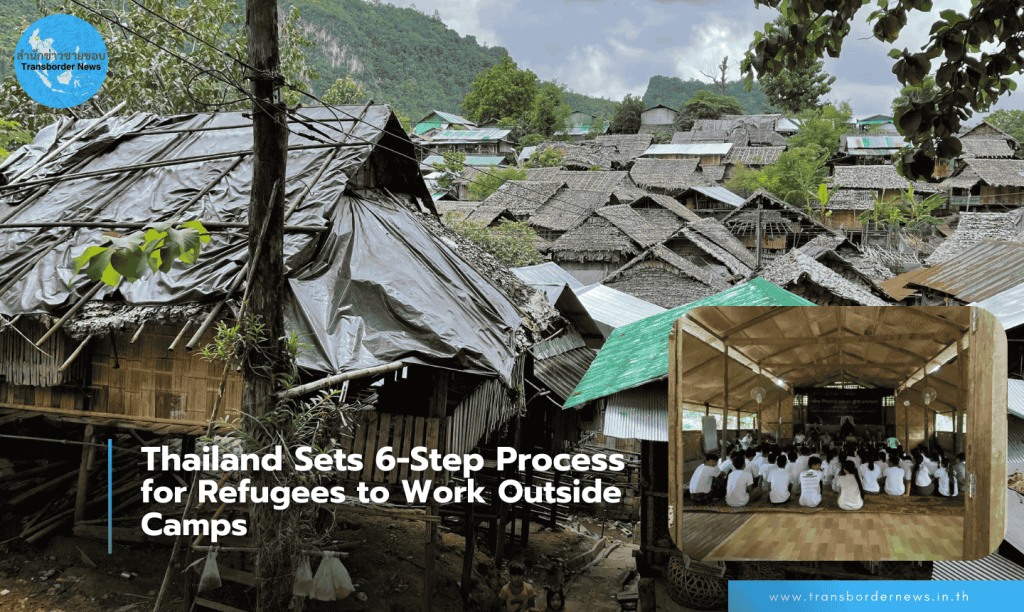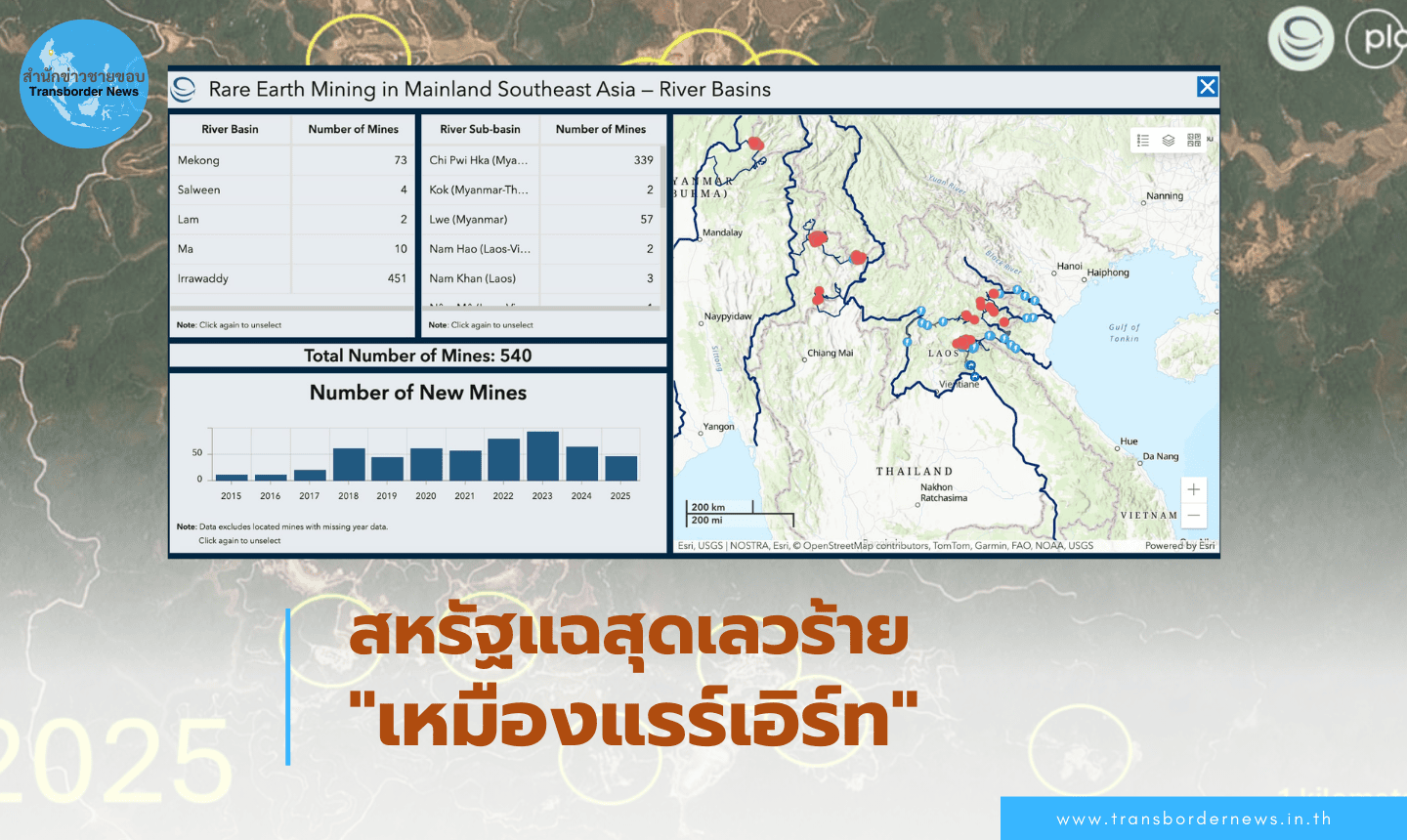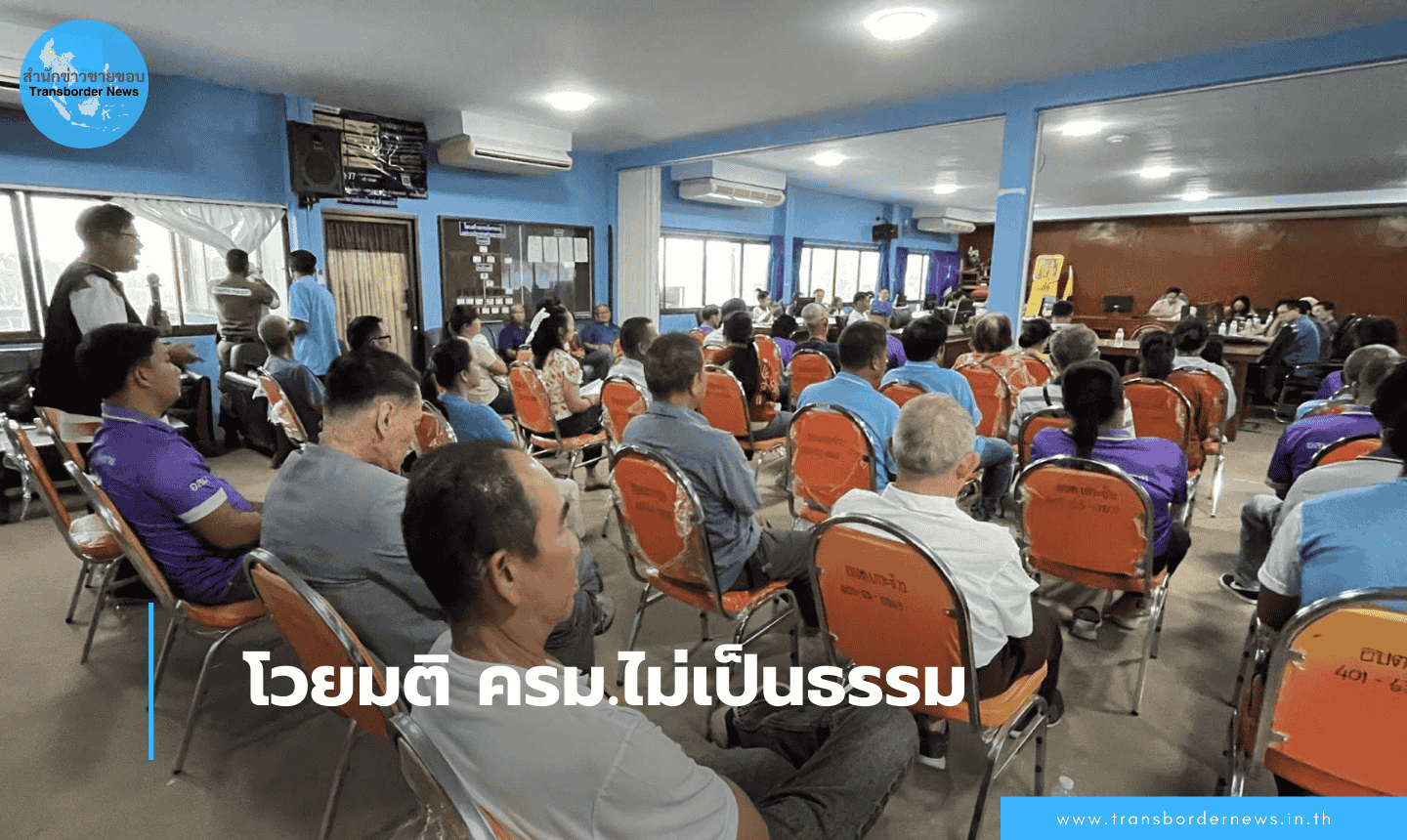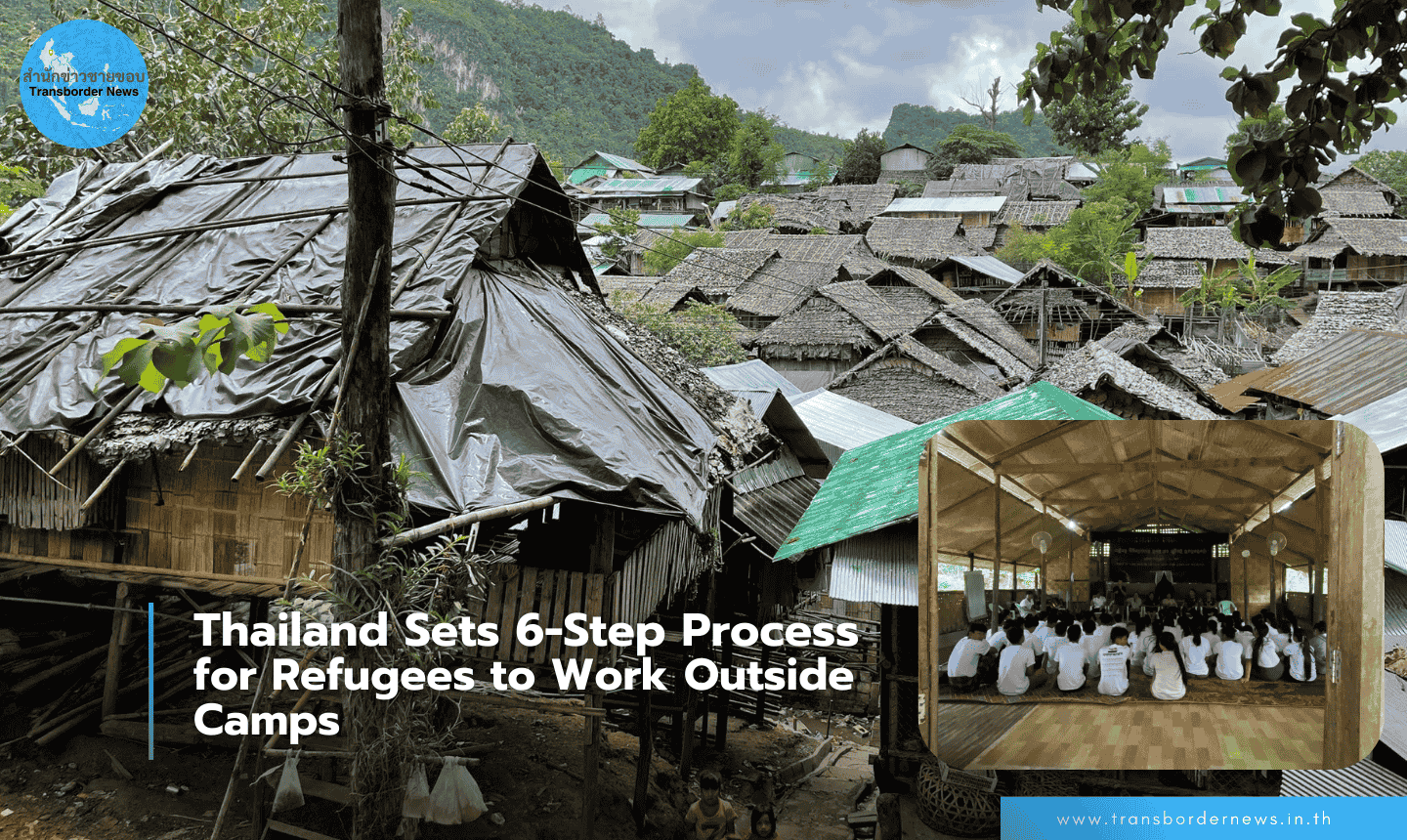September 22, 2025 — The Department of Employment (DoE) has clarified the process for refugees in Thailand’s nine temporary shelters across Mae Hong Son, Tak, Kanchanaburi, and Ratchaburi to legally leave camps and work outside, following a recent Cabinet resolution. The scheme will officially begin on October 1, 2025, after joint announcements from the Ministry of Labor and the Ministry of Interior.
DoE Director-General Pichet Thongphan explained that about 42,000 refugees are currently in temporary shelters, of whom 12,000 have expressed willingness to work. He detailed the six-step procedure:
1 Refugees in the shelters are surveyed, and those wishing to work are listed.
2 Employers select workers inside the shelters and submit their names to the provincial employment office, which then forwards the list to the destination province.
3 Employers take the selected workers to the provincial administration office to request permission for them to leave the camp and receive a form ‘Ornor 1’.
4 Authorities issue official approval, and the destination province is notified once workers arrive.
5 Employers escort the workers to undergo health checks and purchase health insurance at state hospitals.
6 Workers apply for and receive a work permit, after which they can start employment.
Pichet confirmed that only workers — not their families — are allowed to leave, as this is strictly for employment purposes.
When asked about concerns that brokers might exploit the system by posing as employers, he said provincial officials will verify employers’ identities and conduct interviews at the source province.
“At this stage, we only expect around 10,000 workers,” he said. “But once others see their peers working outside, more may come forward, and the numbers could increase gradually.”
He also stressed that employers face almost no costs — only a 100-baht administrative fee — besides mandatory health checks and health insurance.
Health insurance will be required in all cases. For businesses covered under social security, workers must be registered, though coverage becomes active only after six months, making interim health insurance necessary. For non-social security sectors, standard health insurance must be arranged immediately.
However, Adisorn Kerdmongkol, coordinator of the Migrant Working Group (MWG), raised concerns about possible broker involvement.
“In practice, many employers may rely on brokers instead of going to the camps themselves,” he said. “This could create extra costs, even though this process should involve no additional fees beyond official charges. In fact, many refugees already have networks for work outside. If they were allowed to match directly with employers, it would reduce reliance on brokers. Clear rules on costs and formal contracts are essential.”
This is a translation of original Thai article https://transbordernews.in.th/home/?p=43868





